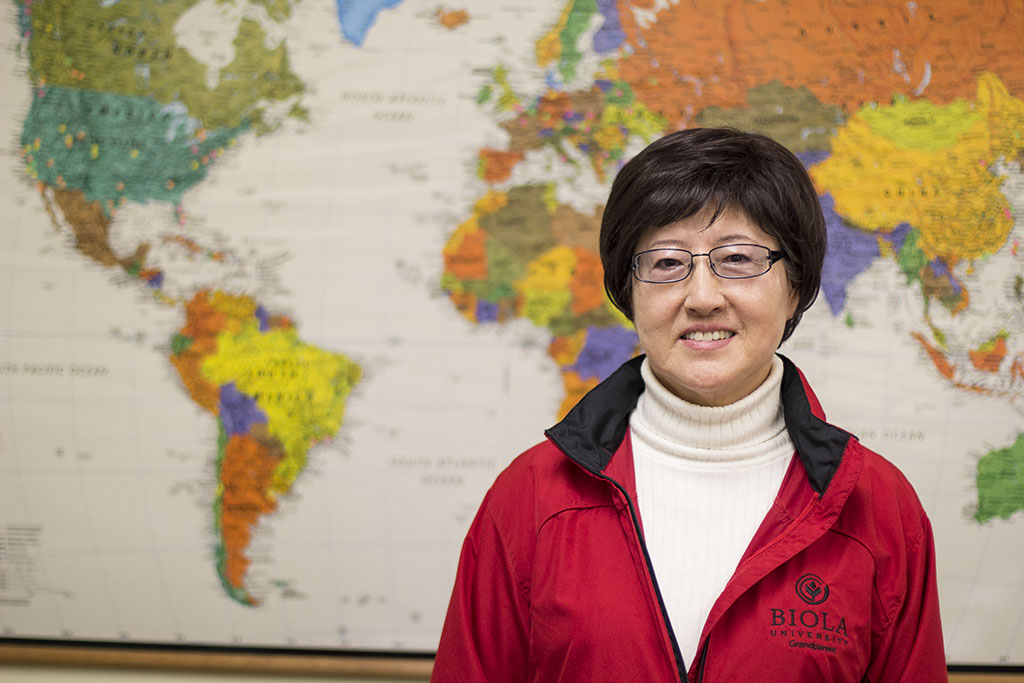
The English Language Study Program has served as a bridge between non-English speaking international students and their studies for over two decades, but that bridge is soon to be removed.
According to Sung Lee, the founder and director of International Student Education, international students are no longer allowed to enter the country on the merits of conditional acceptance, or when the person has all that it takes to be a Biola student, minus the ability to speak English fluently. Now, the government only allows for the student to study solely English language, or participate in normal courses that an English-speaking student would take. In this semester alone seven students have been denied a visa, said Lee. Since the number of students in the program has dropped, this is ELSP’s last semester.
“Twenty-three years ago I have started this program. Now I’m going to retire at the end of this semester and this program is closed,” Lee said.
International students who are coming to Talbot or Biola with poor English are not able to study effectively because their classes are taught entirely in English, according to Lee.
“Upon arriving we give [international students] an English placement exam,” Lee said. “If they have too weak English, we let them have a more intensive study of English. At a certain point you are allowed to take academic courses along with English class.”
Freshman intercultural studies major and ELSP participant Gyeong Ju Son experienced the benefits of the program first hand.
“When I was in Korea I learned English in my school, but just like grammar and academic English,” she said.
Gyeong studied English in Korea for three years, but was unable to hold a conversation in English. After just one semester of participation in ELSP, Gyeong is able to have a full conversation with her ELSP partner, sophomore communication studies major Mariah Medina.
“I’ve never had a friend that has not been from America, and it’s been awesome to experience that and have Ju be my friend,” Medina said. “It’s really interesting to hear just how different things are over there, like what something can mean to them.”
PROGRAM HAS BEEN BENEFICIAL
For the 160 students enrolled each semester, their participation in the program is often life-changing, according to ELSP admissions advisor Pauline Kim. International students emerge a more confident English speaker, and many go from no grasp of conversational English to fluency. As relationships develop, English-speaking students often invite their conversation partner to family events and integrate them into their lives.

“I’ve learned how to have a conversation with her, how to speak English better. I’ve learned a lot from her,” Gyeong said of Medina. “I never think of it as ‘partners’ — just like a normal friend.”
The knowledge of the end of ELSP raises worries for Gyeong.
“I hope ELSP will continue. If they do not have ELSP for an international student, it would not be very good,” Gyeong said.
ELSP incorporates conversation, listening and speaking and learning about culture, whereas Toefl is just an academic test, Gyeong explained.
Lee believes the program’s importance lies in the fact that the international students who participate are not only taught English, but also connected to both Biola and American culture.
“The mission of ELSP is to serve and equip committed Christian, non-native English speaking students with the language, academic and cultural skills to achieve their academic goals at Biola University, and to produce men and women strong in mind and character to be servant leaders in our global community,” said Lee.
Despite the lives affected by the program, Lee feels at peace with the closing of the department.
“God is in control, and it’s in his time. To me, before I feel sad, I feel first that God is doing his way. I know God, he controls and does everything. In my life I think God prepared me and used me [in] that way,” Lee said.







